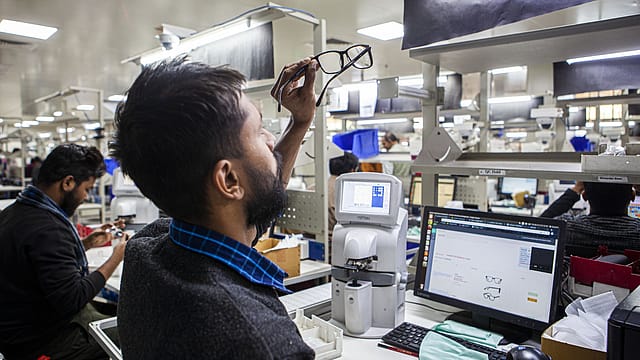Lenskart to go public in 24 months
ADVERTISEMENT

Lenskart may consider floating an initial public offering (IPO) in the next 24 months. The Softbank and Temasek-backed startup that has amassed over $900 million in funding so far is in no hurry to make a debut on the exchanges even as a spate of new-age firms are making a beeline for the public markets. The strategy is to first scale up the business. "We are open to both India and global listing. Right now, however, we are focused towards getting to a scale and a stage where we feel somewhat satisfied that we have created an impact. Currently, if you look at our scale, we do not necessarily feel that we have created a big dent in any market,” co-founder & CEO Peyush Bansal tells Fortune India in an interview.
The eyewear brand also operates in a clutch of global markets like Singapore, Dubai and the US. In the local market which is dotted with competitors like Titan Eyeplus and GKB Opticals and the bulk of which is still largely unorganised, the startup holds no more than a 5%-6% share currently, estimates Bansal. The bigger problem is that the space is heavily underpenetrated; of the expected 600 million Indians who require glasses, only about 200 million are using them today. Inadequate eye tests, lack of flexible eye testing options and general awareness has hindered market expansion. “About 70% of the eyewear market is yet to be created. The more testing happens, the more the realisation. The market size is changing constantly. It is a highly unorganised market and it is difficult to assess the share. Overall, we will not own more than 5%-6% of the market even now is my sense,” says Bansal. The startup says that it conducts some 30,000 eye tests per day.
In India where a large part of the population, particularly in the smaller cities prefer store visits, Lenskart is planning to widen the network of its brick-and-mortar stores. The company is looking to open 400 outlets across the country in FY23 which will take its total store count to more than 1,400. The approach will be to considerably deepen its existing store footprint in tier two and three cities as well as to launch in new smaller cities. The startup has already forayed into locations like Chhattisgarh, Jammu & Kashmir, Assam, Bihar and Himachal Pradesh. “We have started entering these markets in a big way. For instance, in a city like Coimbatore if earlier we had one or two stores, we are now taking it to ten stores. If in Jammu & Kashmir, if we had one store, we are adding four to five more stores,” says Bansal. This, however, is not to say that the firm is not prioritising metros and tier one cities; expansion in these areas will continue. “Our philosophy is to gain 50% market share in India and if we want to do that, creating depth in megacities and penetrating in smaller cities become equally important,” says Bansal. A big market like Bengaluru that alone generates revenues worth ₹200 crore for Lenskart is crucial to its growth narrative. “If we look at the revenues that we get from smaller cities from a unit economics perspective, they are actually at par with larger cities,” says Bansal.
The challenge of a diverse market like India is to expand the business without compromising on the consumer experience. “The key is not how to keep 95% of the consumers happy but the rest of the 5%. If you really want to win a market, particularly like India, the difference is only in the last 5%,” explains Bansal.
Lenskart claims to service over seven million customers. About 40% of the users make purchases through both the online and offline channels. The share used to be just about 10% two years back.
Catering to the rapidly evolving consumer taste in a post-pandemic world is sure to give brands an edge. Lenskart is no different, it is preparing to cater to the changing consumer demand. It is gearing up to launch Neso Brands, a Thrasio style venture which will acquire global brands and scale them up. Neso Brands, which will operate as a separate entity, is expected to close a couple of acquisitions in the next 90 days, says Bansal. The thinking behind the move is that the eyewear space will become heavily segmented in terms of product categories ten years from now, just like it has happened in the apparel and footwear segments. “Today we have casual, semi-casual and street wear in apparel. In footwear, we have walking and running shoes. This is what will happen in eyewear. Neso is actually an initiative to create eyewear brands of the future,” says Bansal.